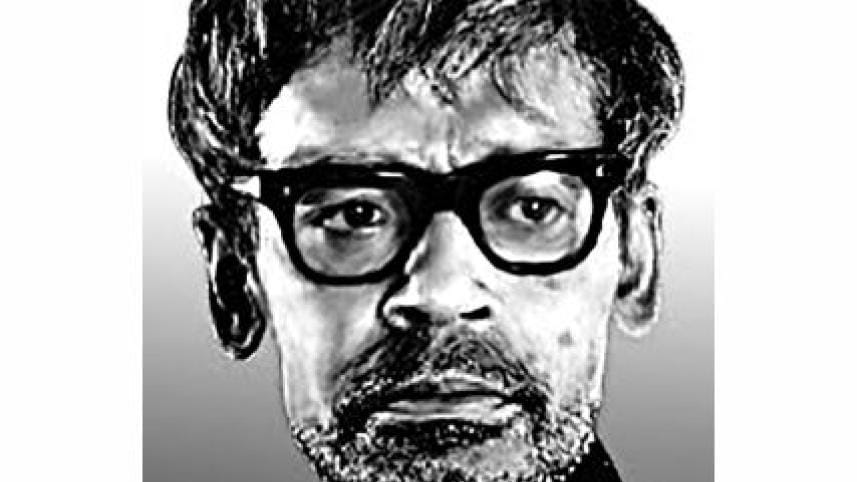Remembering RITWIK on his birth anniversary

Ritwik Ghatak is better known as an auteur whose works signify the gloom and disorder associated with the partition of Bengal. His struggle was immense in his short-lived life of 50 years, and hardly received any recognition for his dedication towards the art of cinema. In his words, “I believe in committed cinema. I mean commitment in the broadest sense of the term.”
Ritwik was born in 1925 in Dhaka. He moved to the other side of Bengal during early 1947. He was an active member of the Indian People's Theatre Association (IPTA). Besides filmmaking, Ghatak was also a mentor to some of Indian cinema's biggest names. At Film and Television Institute of India, his student list included Mani Kaul, John Abraham, Saeed Mirza and Adoor Gopalakrishnan.
Among the awards he bagged is National Film Award's Rajat Kamal Award for Best Story in 1974 for Jukti Takko Aar Gappo and Best Director's Award from Bangladesh Cine Journalist's Association for Titash Ekti Nadir Naam. The Government of India honoured him with the Padma Shri for Arts in 1970.
Ritwik Ghatak himself is an institution for the nouveau filmmakers of the country across the subcontinent. His films are now discussed, used as a text for film schools and showcased in various retrospective sessions of national and international film festivals. Here are some of the must watch films of Ritwik Ghatak on his birth anniversary.
On the eve of his 91st birthday, here are some of his feature films that you should definitely put on your viewing list:
1) AJANTRIK
This 1958 film was among the earliest in India that showcased an inanimate object - a car, as a major character. The main story revolves around Bimal and his equation with his old, 1920 Chevrolet jalopy called Jagaddal. For fifteen years Bimal resists peer pressure to upgrade to a new machine, because he doesn't see Jagaddal as a machine to begin with.
2) MEGHE DHAKA TARA
One of Ghatak's earlier films Meghe Dhaka Tara (1960) is also one of his more popular films. The main character of the film Nita, symbol of Partition in Meghe Dhaka Tara is Nita herself. She is the living embodiment of refugee life of the working woman.
3) JUKTI TAKKO AAR GAPPO
In this last feature film made in 1977, Ghatak almost projects his own life story on screen and use that as a metaphor to the state Bengal. He also makes an appearance in the film.
4) TITASH EKTI NADIR NAAM
The 1973 film was an adaptation by Ghatak of a Bengali autobiographical novel by the same name by Adwaita Mallabarman. The main narrative follows the lives of the Malo fishermen who work the waters of the river Titash.



 For all latest news, follow The Daily Star's Google News channel.
For all latest news, follow The Daily Star's Google News channel.
Comments